DDP Annual Report 2024 – Managing the socio-economic transition
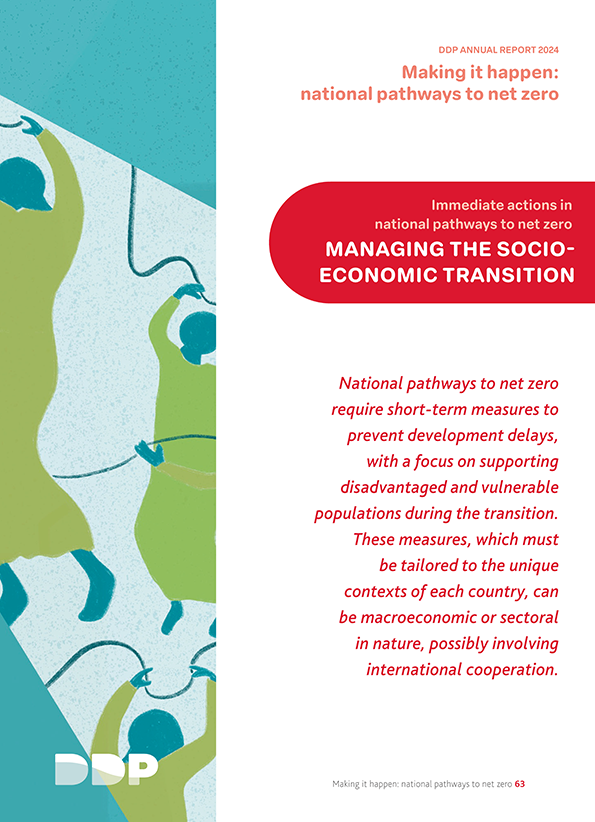
National pathways to net zero require short-term measures to prevent development delays, with a focus on supporting disadvantaged and vulnerable populations during the transition. These measures, which must be tailored to the unique contexts of each country, can be macroeconomic or sectoral in nature, possibly involving international cooperation
DDP Annual Report 2024 – Accompanying structural economic and industrial shifts
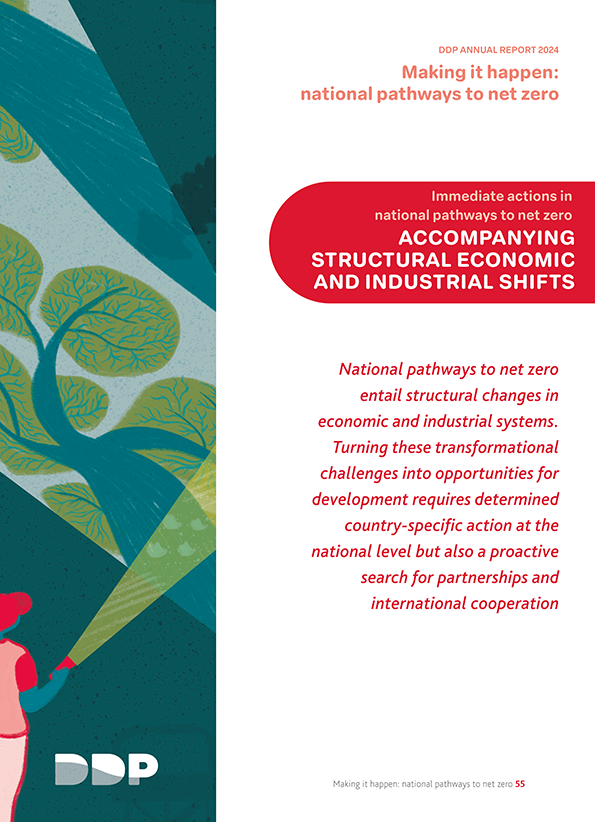
National pathways to net zero entail structural changes in economic and industrial systems. Turning these transformational challenges into opportunities for development requires determined country-specific action at the national level but also a proactive search for partnerships and international cooperation
DDP Annual Report 2024 – Triggering short-term emission reductions
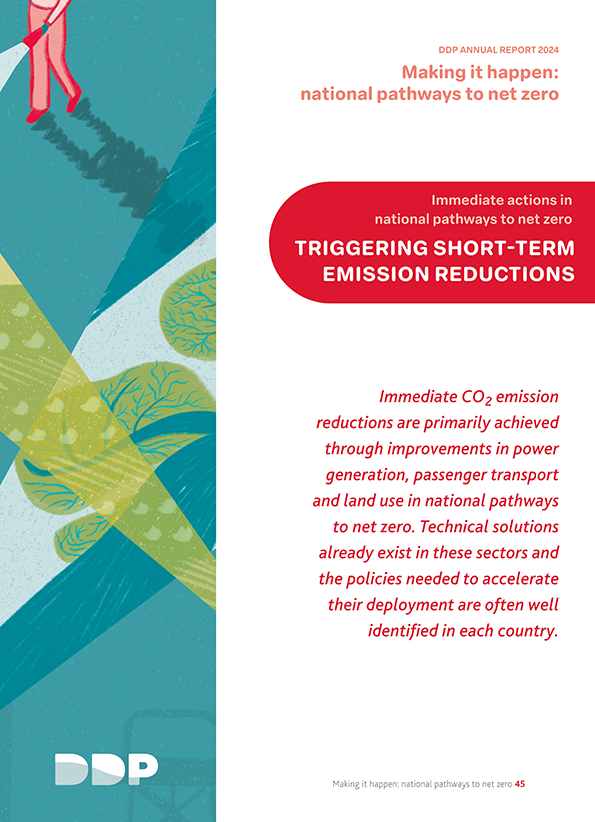
Immediate CO2 emission reductions are primarily achieved through improvements in power generation, passenger transport and land use in national pathways to net zero. Technical solutions already exist in these sectors and the policies needed to accelerate their deployment are often well identified in each country
DDP Annual Report 2024 – Enabling long-term emission reductions
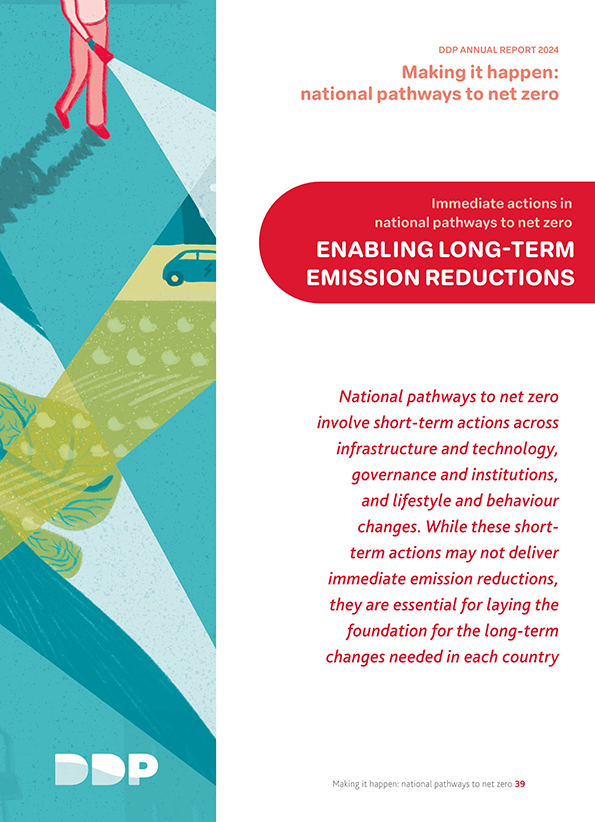
Measures designed to address CO2 emissions are not sufficient to reduce non-CO2 emissions from agriculture in national pathways to net zero. Targeted actions on non-CO2 gases require a country-driven approach to the transformation of the agriculture sector
DDP Annual Report 2024 – Sources of non-CO2 emissions
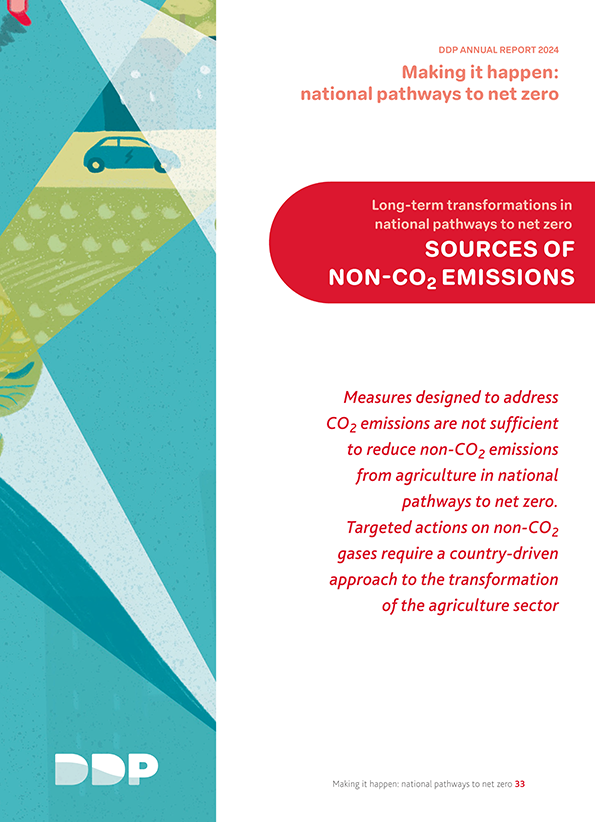
Measures designed to address CO2 emissions are not sufficient to reduce non-CO2 emissions from agriculture in national pathways to net zero. Targeted actions on non-CO2 gases require a country-driven approach to the transformation of the agriculture sector
DDP Annual Report 2024 – Land-use sector
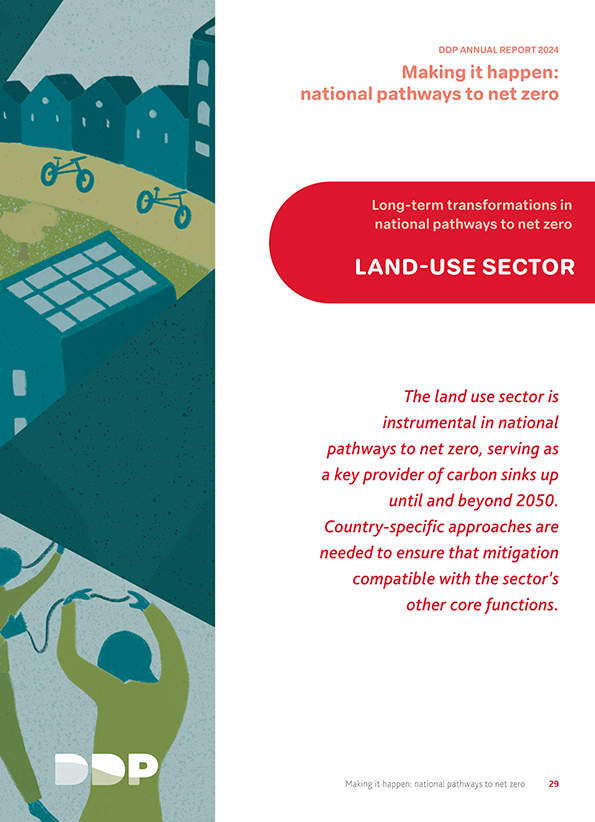
The land use sector is instrumental in national pathways to net zero, serving as a key provider of carbon sinks up until and beyond 2050. Country-specific approaches are needed to ensure that mitigation compatible with the sector’s other core functions
DDP Annual Report 2024 – Carbon Capture and Storage
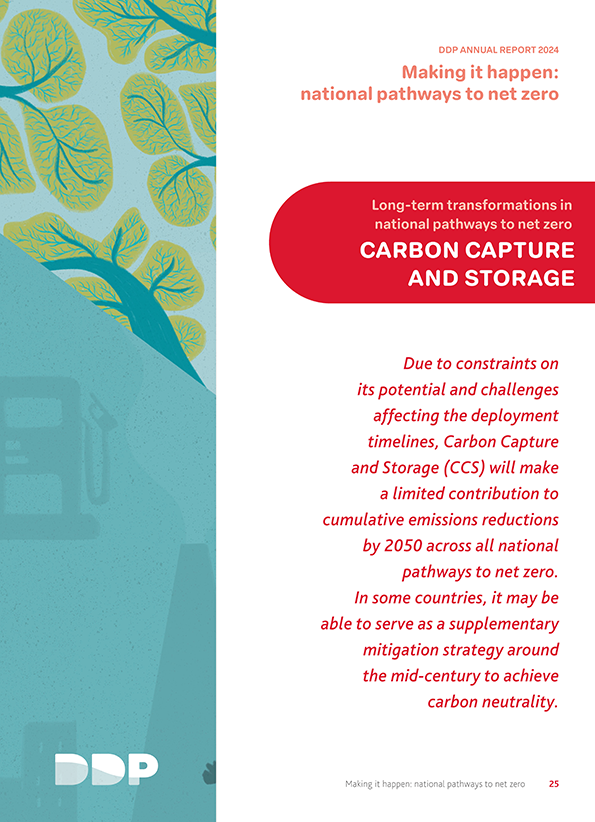
Due to constraints on its potential and challenges affecting the deployment timelines, Carbon Capture and Storage (CCS) will make a limited contribution to cumulative emissions reductions by 2050 across all national pathways to net zero. In some countries, it may be able to serve as a supplementary mitigation strategy around the mid-century to achieve carbon neutrality.
DDP Annual Report 2024 – Use of Fossil Fuels
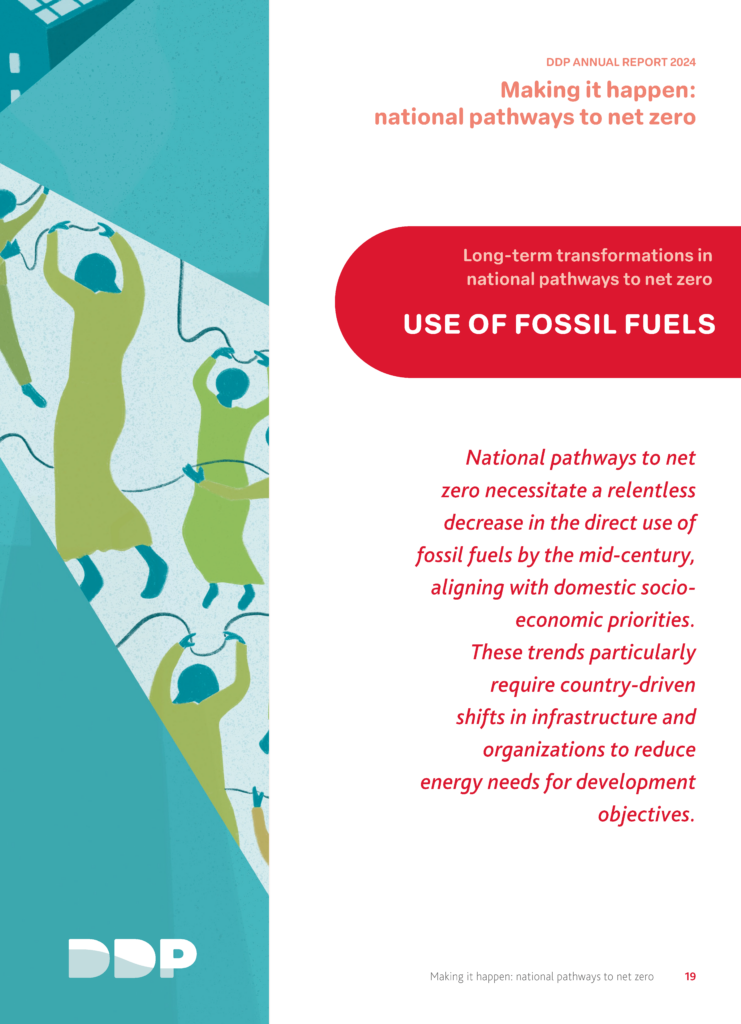
National pathways to net zero necessitate a relentless decrease in the direct use of fossil fuels by the mid-century, aligning with domestic socio-economic priorities.
These trends particularly require country-driven shifts in infrastructure and organizations to reduce energy needs for development objectives.
DDP Annual Report 2023 – AFOLU
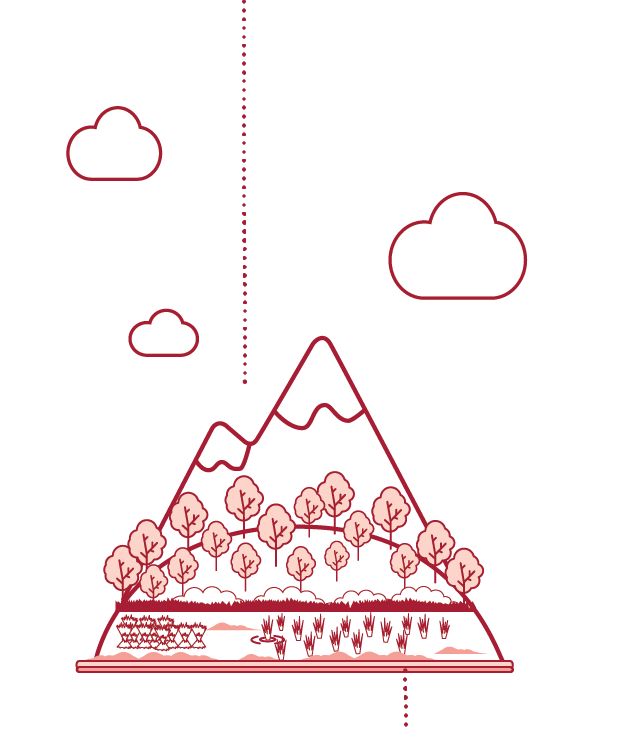
The agriculture, forestry, and land use sector contribute 22-34% of global greenhouse gas emissions while facing climate, biodiversity crises, and food insecurity. Vulnerable to climate change, it risks reduced yields, biodiversity loss, and desertification. Employing billions globally, it’s pivotal for food security but fails to provide healthy diets. Transforming this sector necessitates systemic changes, including ecosystem preservation, agricultural practice transformations, and addressing food waste. Despite insufficient progress, increasing long-term ambition and accelerating immediate actions are crucial to achieve global targets. Analyzing cases like Brazil, Colombia, India, Indonesia, and Senegal, the chapter highlights the need for international cooperation to drive necessary transformations.
DDP Annual Report 2023 – Freight
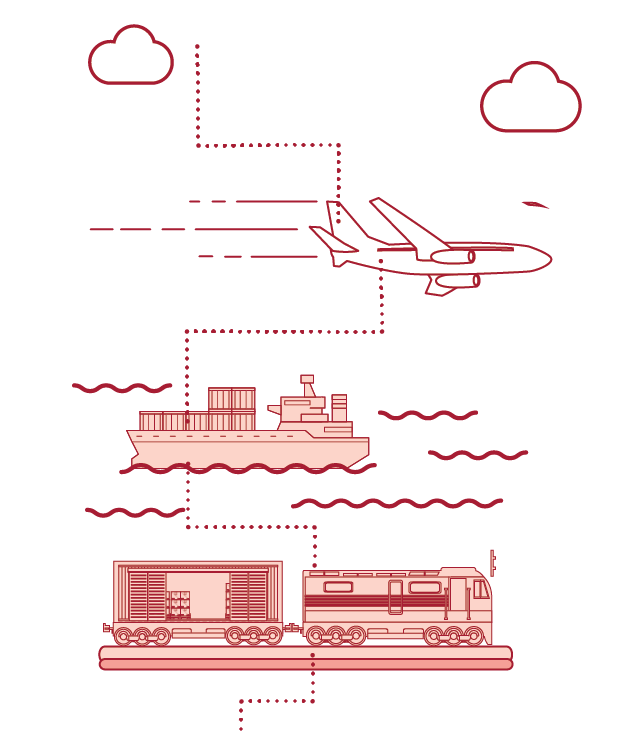
Transport contributes around 15% of global greenhouse gas emissions, with freight accounting for 40% of these emissions, and its growth is outpacing other sectors. Current strategies for freight decarbonization are insufficient, focusing primarily on technological advancements rather than needed organizational changes. The IPCC emphasizes that achieving carbon neutrality requires significant systemic transitions, including both technological and organizational shifts in the transport sector. This shift involves reducing tonnes transported, kilometers traveled, and the dominance of road freight through organizational changes, alongside expanding low-carbon alternatives. The chapters details examples from the Deep Decarbonization Pathways network illustrating potential organizational changes based on national analyses for emissions reduction in the freight sector.